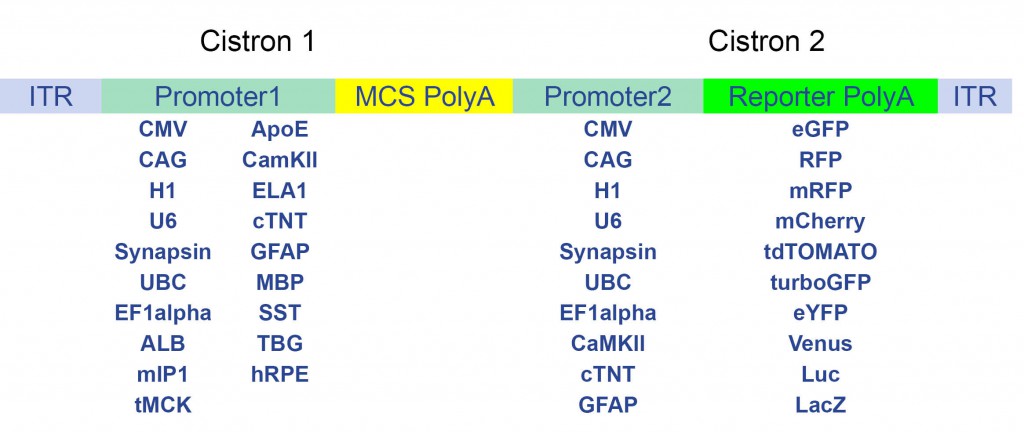Adenovirus (AV) are non-enveloped and non-integrative icosaedral viruses. Recombinant AV (genetically modified with respect to the wild-type in order to lose their capacity of replication) are widely used for their high infectivity (almost 100% in almost all mammalian cell types) their high level of expression of exogenous protein (up to 20% of total host protein expression), their episomal maintenance (non-integrative, non-genome disruptive ) and because they are easy-to-use in vitro and in vivo. Among their advantages, their ability for delivering large inserts (up to 8 kb) and their strong safety track records are paramount. They are also able to infect dividing and non-dividing cells, primary stem or somatic cells even at the latest stages of differentiation. The main issue of AV is that being episomal and non-replicative, they do not expand with cell proliferation, thus making them optimal for short term expression applications (up to 2-3 weeks depending on the targeted cell) and never suitable for long term studies. Also, AV capsides are immunogenic, which is redhibitory for iterative long-term applications. If immunogenicity must be ruled out, the best alternative to AV should be adeno-associated viruses (only for shorter inserts up to 5 kb) or lentiviral particles (for longer inserts up to 8 kb) both with their potentially harmful ability for genomic integration. As AV can deliver large inserts, both single1 and dual2 cistronic expression vectors are commercially available as shown in the table below: 1 – delivery of a unique gene 2 – delivery of a gene of interest under one promoter along with expression of a reporter gene under another promoter  If you are interested in purified, ready-to-use AV particles or if you have any questions about this topic, I’ll be pleased to help you out. Just leave your comments below!
If you are interested in purified, ready-to-use AV particles or if you have any questions about this topic, I’ll be pleased to help you out. Just leave your comments below!




2 Responses
The “one size fits all” line concerning adenovirus immunogenicity should be tempered. Not all adenovirus vectors are immunogenic: in the rat CNS canine adenovirus (CAV-2) vectors – even E1-deleted vectors – can last for >6 months…and helper-dependent CAV vector last for >12 months
Thank you very much for your contribution. Indeed I see you did a great job on this topic:
http://www.ncbi.nlm.nih.gov/pmc/articles/PMC3185752/
http://www.fasebj.org/content/early/2004/02/10/fj.03-0438fje.full.pdf
http://journals.plos.org/plosone/article?id=10.1371/journal.pone.0071032
http://jvi.asm.org/content/81/7/3272.full
I was more referring to AV in general in comparison to AAVs. It is excellent this immunogenicity issue being ruled out in AV as it is an optimal tool for large inserts delivery opening a wide field for clinical applications. Thank you again for this information, your wonderful job and for keeping this blog alive.